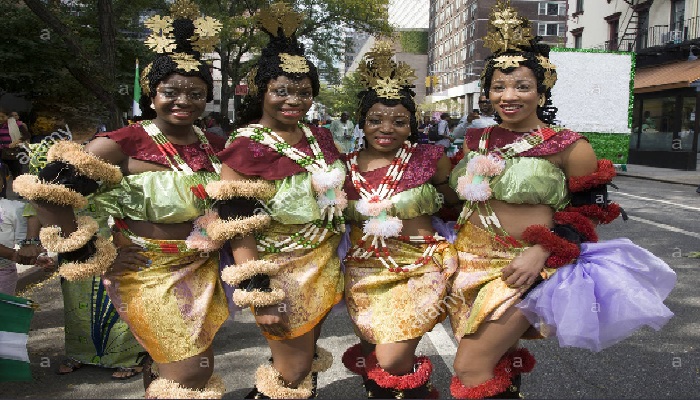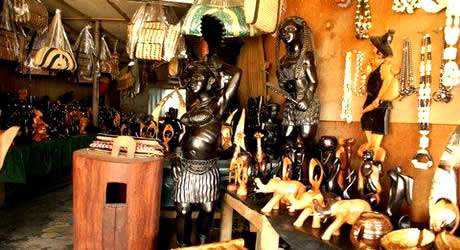brief history of akwa ibom state
History
Akwa Ibom State was created on the 23rd of September 1987 by the then Military Administration of General Ibrahim Badamosi Babangida.The creation of the State brought to fruition years of prolonged struggle by the people that occupied the mainland part of the former Cross River State.
For many, the creation of the State was a mark of justice, having been left out in earlier state creation exercises despite leading in the struggle for state creation in Nigeria, through the Ibibio Union, - a foremost Socio-Cultural organization that served as a unifying platform for the people of this part of Nigeria.
In 1948, Ibibio Union, formed in 1928, transformed from a mere cultural association to a goal-driven institution which promoted and championed the cause of state creation in Nigeria.
However, when in 1967 the 12 state structure was established following the creation of states by the General Yakubu Gowon administration, the Mainland part of Calabar Province in the then Eastern Nigeria was merely part of the then South Eastern State.
In 1976, South Eastern State was renamed Cross River State. This change in name did not satisfy the people. Rather, it encouraged them to carry on with the struggle for a state of their own.
After the collapse of the 2nd Republic in 1983, a memorandum demanding the creation of Akwa Ibom State was submitted to the General Buhari Administration by the Paramount Rulers from the 10 Local Government areas that made up the mainland part of the then Cross River State, even though it did not yield the desired result.
Undaunted, the people waited for another opportunity. The opportunity came when, in 1986, the Administration of General Ibrahim Babangida set up a political Bureau to define the future political direction of the country. The memorandum was re-submitted.
On September 23, 1987, the collective dream of the people was actualized as Akwa Ibom State, the “Land of Promise” was finally created, after about four decades of sustained agitation.
Location:
Lying between Latitudes 4o 32” and 5o 33” North and Longitudes 7o 35” and 8o 25” East, the State is bounded on the East by Rivers State, on the West by Cross River State, on the North by Abia State and on the South by the Gulf of Guinea.Area::
Akwa Ibom State currently covers a total land area of 7,249 square kilometers. The area does not take into consideration disputed territories. It is the 10th largest state in Nigeria in terms of landmass. About 13.4 percent of the 960km of Nigeria’s Atlantic Ocean coastline runs through the State. towns include; Eket, Ikot Ekpene, Ikot Abasi, Oron, Abak, Itu, Etinan, Ibeno, etc.People::

The people of Akwa Ibom State are culturally homogenous with a common identity and are reputed to be the first settlers in the present day South Eastern Nigeria. The three major dialectal groups are Ibibio, Annang, and Oron. Other subgroups include Eket, Ibeno, Itu Mbonuso, and the Andonis. English is the language of government and business.
Vegetation:
Akwa Ibom falls within the tropical zone with dominant vegetation of green foliage of trees and shrubs. It constitutes a major chunk of the nation’s oil-palm belt. The Atlantic coastline stretches 129km from Oron in the East to Ikot Abasi in the West. The State also has three distinct vegetation zones: the saline water swamp forest, the freshwater swamp forest, and the rain forest.Culture:

Akwa Ibom is often described as a uni-cultural State where norms, taboos, customs, and traditions are the same. The folkways may vary from one ethnic grouping to another, but the operational cultural norms are basically the same all over the State.
The cultural similarities bind the people together especially in such areas as cuisines, dressing, dances, songs, rituals, folklore, beliefs and myths. Almost all aspects of its culture have potentials to provide fascinating experiences for tourists and for investment opportunities.
Special Dances:
Asian Ubo IkpaAsian Uboikpa means the proud and flamboyant maiden. This dance is performed by maidens between the age of 18 years and 25 years who have successfully gone through the ‘Mbopo’ institution. Mbopo being the period a girl is confined, fattened and drilled on all aspects of home management in preparation for marriage.
It is common in almost all the hinterland of the State. Performed by maidens at their prime, Asian Uboikpa, therefore, is in its visual appeal and celebrates and affirm the youthful innocence and purity in their beauty, while showcasing the popular admonition among the Akwa Ibom people that chastity once lost is lost forever.
Oko
Oko is the male dance which is likened to the war dance because of its ferocious displays. The climax of this dance starts when the dancers’ start slashing at one another with razor-sharp machetes and firing at themselves with live bullets from Dane guns.
But mysteriously, not a drop of blood is shed as the machetes cannot penetrate the skin of the dancers, or the bullets hurt any of the members of what is obviously a secret society.
Nkerebe
Nkerebe (looking for a husband) is another women dance, performed once a year when young girls at the age of puberty prepare to perform the Mboppo ceremony.
Asian More Iban
Asian More Iban are dances performed by maidens who wish to inform unmarried men of the community how beautiful and eligible they are. Other women dances include Akan, Asamba, and Ewok which is performed in the villages occasionally.
Ndok Ufok Ebe
The Ndok Ufok Ebe (shame of a bad marriage) is other women dance to express their grievances over maltreatment of women by their husbands. The dance is performed once a year. It is accompanied by songs telling the community about their plight, often, it involves going topless to the market place.
Ebre
There is also the Ebre society women dance performed yearly during the harvesting of new yam. During this occasion, women dance to the market place and neighboring villages. The dance is not only meant to entertain but as well as a deliberate protest against what is regarded as male chauvinism, which is reflected in the vulgarity of some of the song texts.



Comments
Post a Comment